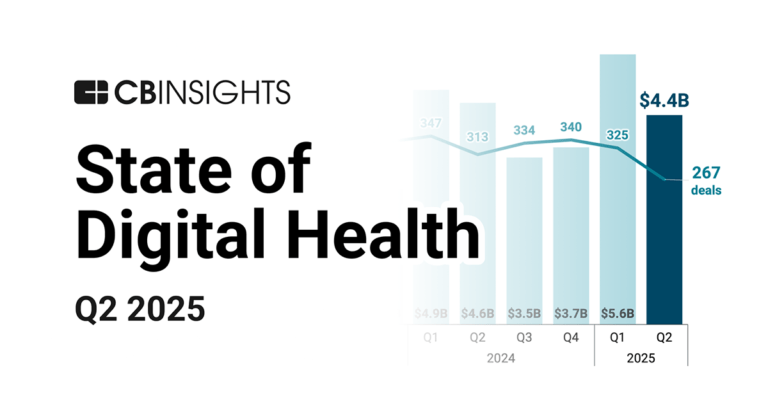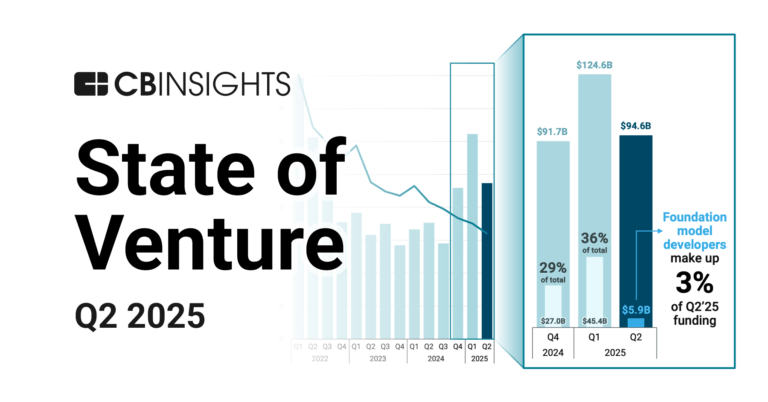
Neuralink
Founded Year
2016Stage
Series E | AliveTotal Raised
$1.33BValuation
$0000Last Raised
$650M | 6 mos agoMosaic Score The Mosaic Score is an algorithm that measures the overall financial health and market potential of private companies.
+86 points in the past 30 days
About Neuralink
Neuralink focused on developing brain-machine interfaces within the medical technology sector. It offers a device designed to assist individuals with paralysis by providing a means to communicate through a brain-computer interface. The company primarily targets the healthcare sector. It was founded in 2016 and is based in Fremont, California.
Loading...
ESPs containing Neuralink
The ESP matrix leverages data and analyst insight to identify and rank leading companies in a given technology landscape.
The medical brain-computer interfaces (BCIs) market offers innovative solutions for patients with neurological disorders. BCIs are devices that allow direct communication between the brain and an external device, such as a computer or prosthetic limb. This technology has the potential to revolutionize the way we treat conditions such as paralysis, epilepsy, and Parkinson's disease. BCIs can also b…
Neuralink named as Leader among 15 other companies, including Neurable, Stairmed, and Blackrock Neurotech.
Loading...
Research containing Neuralink
Get data-driven expert analysis from the CB Insights Intelligence Unit.
CB Insights Intelligence Analysts have mentioned Neuralink in 2 CB Insights research briefs, most recently on Jul 24, 2025.

Jul 24, 2025 report
State of Digital Health Q2’25 Report
Jul 10, 2025 report
State of Venture Q2’25 ReportExpert Collections containing Neuralink
Expert Collections are analyst-curated lists that highlight the companies you need to know in the most important technology spaces.
Neuralink is included in 4 Expert Collections, including Unicorns- Billion Dollar Startups.
Unicorns- Billion Dollar Startups
1,309 items
Artificial Intelligence (AI)
37,333 items
Companies developing artificial intelligence solutions, including cross-industry applications, industry-specific products, and AI infrastructure solutions.
Digital Health
12,122 items
The digital health collection includes vendors developing software, platforms, sensor & robotic hardware, health data infrastructure, and tech-enabled services in healthcare. The list excludes pureplay pharma/biopharma, sequencing instruments, gene editing, and assistive tech.
Generative AI
2,951 items
Companies working on generative AI applications and infrastructure.
Neuralink Patents
Neuralink has filed 33 patents.
The 3 most popular patent topics include:
- implants (medicine)
- integrated circuits
- neuroprosthetics

Application Date | Grant Date | Title | Related Topics | Status |
|---|---|---|---|---|
2/28/2022 | 3/11/2025 | Multiplexing, Implants (medicine), Integrated circuits, Cardiac anatomy, Broadcast engineering | Grant |
Application Date | 2/28/2022 |
|---|---|
Grant Date | 3/11/2025 |
Title | |
Related Topics | Multiplexing, Implants (medicine), Integrated circuits, Cardiac anatomy, Broadcast engineering |
Status | Grant |
Latest Neuralink News
Nov 12, 2025
'We're already living in science fiction': The neurotech revolution AFP Synopsis Neurotechnology is rapidly advancing, helping paralysed people walk and translating thoughts into words. While breakthroughs bring medical hope, experts warn of ethical risks like privacy invasion and misuse. As companies like Neuralink push human-AI links, UNESCO urges global guidelines to regulate brain data and protect people’s thoughts from potential exploitation. Agencies From translating thoughts into words to allowing paralysed people to walk, the field of neurotechnology has been quietly surging ahead, raising hopes of medical breakthroughs -- and profound ethical concerns. Some observers even think that neurotech could end up being as revolutionary as the far more hyped rise of artificial intelligence (AI). "People do not realise how much we're already living in science fiction," King's College London researcher Anne Vanhoestenberghe told AFP. The scientist leads a laboratory developing electronic devices which are implanted into a person's nervous system -- not just the brain, but also the spinal cord that transmits signals to the rest of the body. It has been a big couple of years for neurotech research. In June, Californian scientists revealed that a brain implant they developed could translate the thoughts of a man with the neurodegenerative disease ALS into words almost instantly, in just one-fortieth of a second. Swiss researchers meanwhile have enabled several paralysed people to regain significant control of their body -- including walking again -- by implanting electrodes into their spinal cords. These experiments, and other trailblazers in the field, are still far from restoring full capability to patients who have lost the ability to talk or walk. It also remains to be seen how such technology, some of which requires invasive brain surgery, could be made available to people in need across the world. But still, "the general public is unaware of what is already out there and changing lives," Vanhoestenberghe said. And these devices are becoming more effective at a remarkable rate, she emphasised. "Previously it took thousands of hours of training before someone could compose several words using their thoughts," she said. "Now it only takes a couple." Musk wants human-AI 'symbiosis' Neurotechnology has been propelled by a combination of scientific advances -- including growing understanding of the human brain -- and technological progress which has shrunk devices down so small they can slot into our skulls. Algorithms using artificial intelligence have significantly sped things along, helping to interpret and transform the data coming from brains. Numerous start-ups that have emerged since the late 2000s have raised tens of billions of dollars for research that has only recently started translating into concrete achievements. The most publicised company is billionaire Elon Musk's Neuralink, which says that it has now implanted 12 people with its chip. While Musk has made characteristically lofty claims, experts have remained cautious about his firm's accomplishments. "Neuralink is currently just smoke and mirrors, with a lot of hype," Herve Chneiweiss, a neurologist and expert in ethics at France's research organisation INSERM, told AFP. However, "the day they manage to produce commercial products -- and it won't be long -- it will be too late to worry about it," he cautioned. Many experts are concerned about the ethical implications of neurotechnology -- particularly because some companies are looking well beyond healthcare applications, instead hoping to use computers to improve our cognitive abilities. Musk, for one, has repeatedly said he ultimately wants Neuralink to allow humans to achieve "symbiosis" with AI. 'Innermost thoughts under threat' Against this background, the United Nations' agency for science and culture UNESCO recently approved recommendations for how nations can regulate neurotechnology. These recommendations -- which are not legally binding -- are due to come into effect on Wednesday. The authors, who include Chneiweiss, adopted a broad definition of neurotech. It includes devices already widely available such as smartwatches and headsets that do not directly interact with the brain, but instead measure indicators providing an idea of the user's mental state. "Today, the main risk is invasion of privacy: our innermost thoughts are under threat," Chneiweiss said. He warned, for example, that neurotech data could "fall into the hands of your boss", who could then decide that you are not spending enough time thinking about work. Some have already started trying to address such concerns. Late last year, the US state of California, a global hub of neurotech research, passed a law protecting the brain data of consumers. Add
Neuralink Frequently Asked Questions (FAQ)
When was Neuralink founded?
Neuralink was founded in 2016.
Where is Neuralink's headquarters?
Neuralink's headquarters is located at 7400 Paseo Padre Parkway, Fremont.
What is Neuralink's latest funding round?
Neuralink's latest funding round is Series E.
How much did Neuralink raise?
Neuralink raised a total of $1.33B.
Who are the investors of Neuralink?
Investors of Neuralink include Founders Fund, VY Capital, Google Ventures, Valor Equity Partners, DFJ Growth Fund and 36 more.
Who are Neuralink's competitors?
Competitors of Neuralink include Synchron, dotLumen, Science, Paradromics, Cognixion and 7 more.
Loading...
Compare Neuralink to Competitors

Neurable specializes in brain-computer interface (BCI) technology within the neurotechnology sector. The company offers products that allow users to interact with devices using brain signals. Neurable's technology can be integrated into various applications, including wellness and diagnostics. It was founded in 2015 and is based in Boston, Massachusetts.

Kernel focuses on neuromedicine within the healthcare sector. Its main offerings include non-invasive brain measurement technology that quantifies brain function to assist in treatment development, clinical trial optimization, and early identification of brain health issues. The company primarily serves sectors involved in neuromedicine treatment development and clinical research. It was founded in 2016 and is based in Culver City, California.

Blackrock Neurotech focuses on developing brain-computer interface technology to assist individuals with neurological disorders within the medical device industry. The company offers neural implants for individuals with paralysis and other neurological conditions. Blackrock Neurotech primarily serves the healthcare sector, including patients and research institutions. Blackrock Neurotech was formerly known as I2S Micro Implantable Systems. It was founded in 2008 and is based in Salt Lake City, Utah.

Paradromics develops brain-computer interfaces (BCI) within the healthcare technology sector. The company provides a data interface that captures and interprets neural signals for individuals with neurological and brain-related conditions. Paradromics serves individuals with severe motor impairment resulting from conditions such as ALS, spinal cord injury, or stroke. It was founded in 2015 and is based in Austin, Texas.

Synchron operates as a medical device company. It focuses on the development of minimally invasive neuromodulation technology solutions. It develops an endovascular brain-computer interface to access every corner of the brain using the blood vessels. It offers a switch device to help paralyzed people, such as those with amyotrophic lateral sclerosis (ALS), communicate by controlling computer cursors with their minds. It was founded in 2016 and is based in Brooklyn, New York.

Cognixion develops noninvasive brain-computer interfaces (BCI) within the neurotechnology sector. The company offers products for individuals with complex disabilities, utilizing neuroscience, artificial intelligence, and augmented reality to create assistive and clinical applications. Cognixion's technology is aimed at individuals with accessibility needs, healthcare providers, and researchers in neurotechnology and assistive communication. Cognixion was formerly known as Smartstones. It was founded in 2014 and is based in Toronto, Ontario.
Loading...
